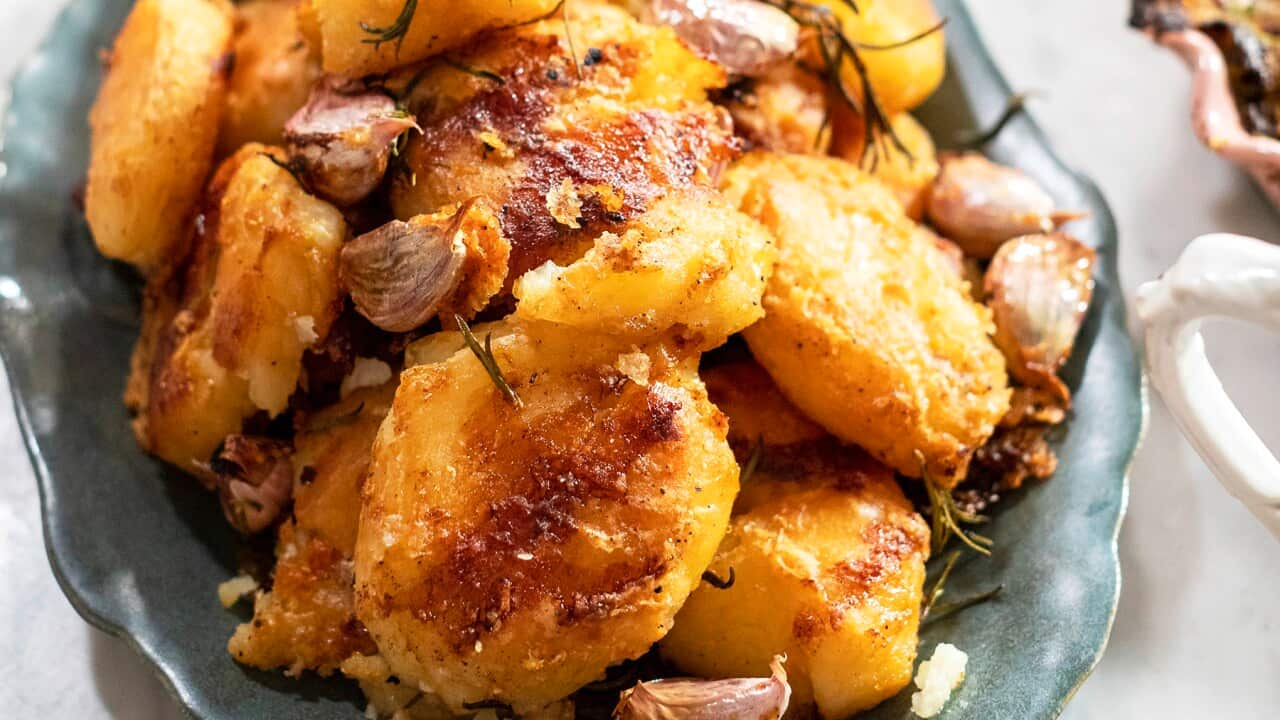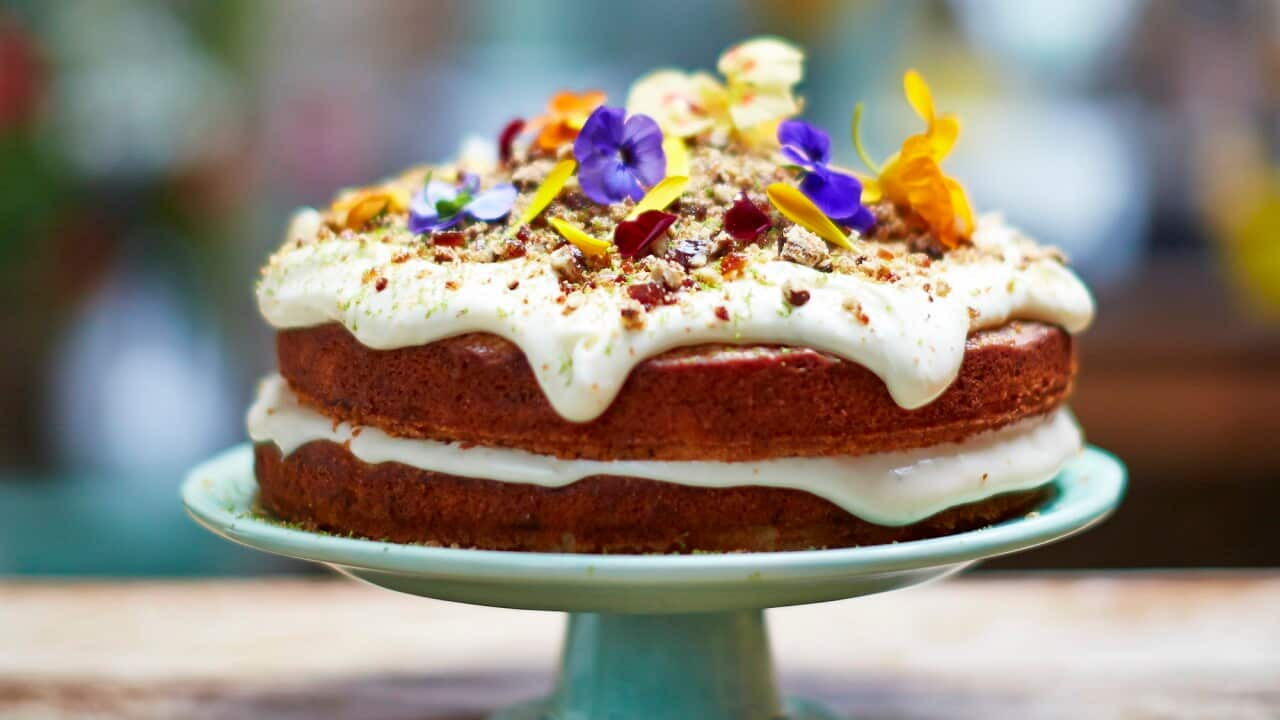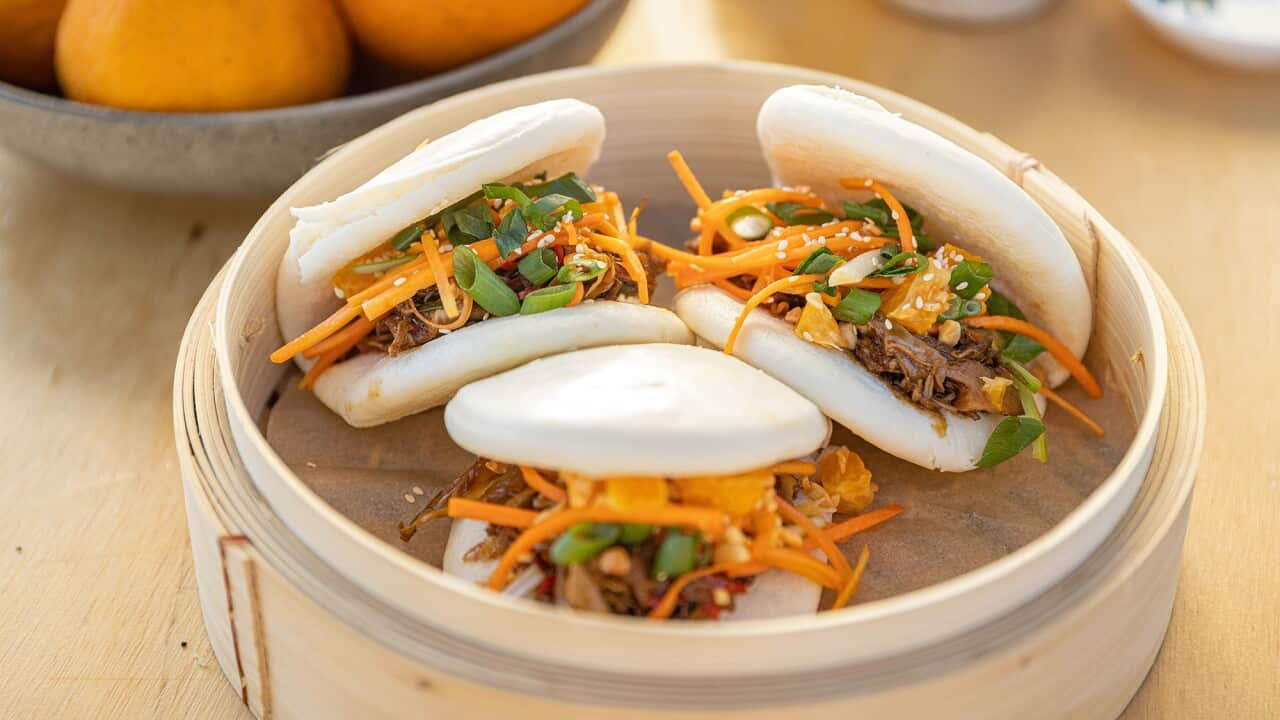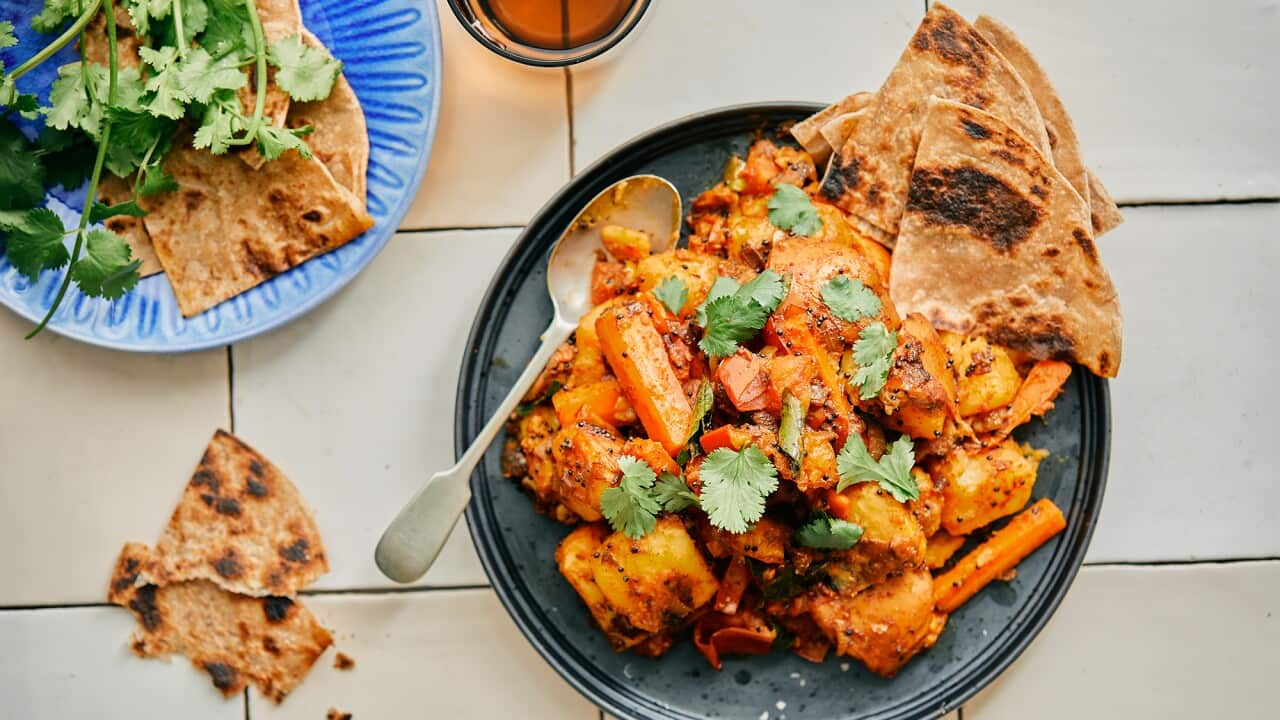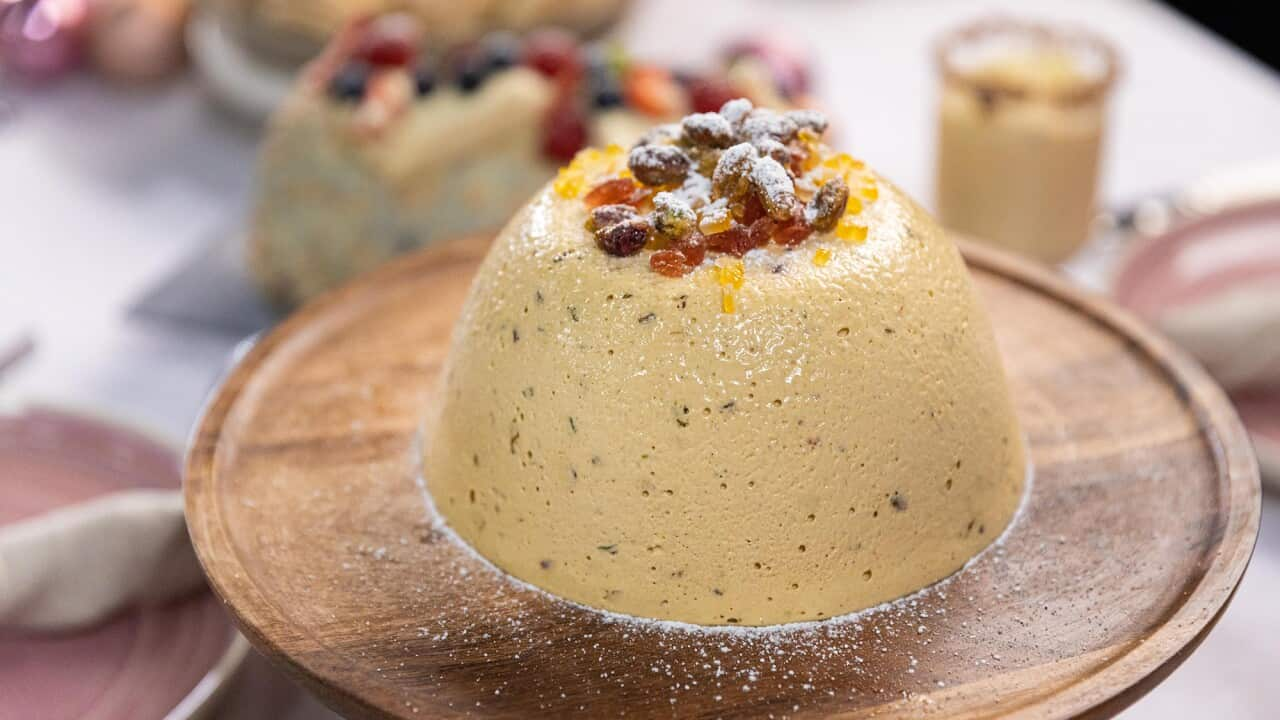makes
8-10
prep
50 minutes
cook
10 minutes
difficulty
Mid
makes
8-10
serves
preparation
50
minutes
cooking
10
minutes
difficulty
Mid
level
Direct quote from Shannon about her doughnuts: ‘I’m not one to toot my own horn, but toooooot bitches!’ Shannon also doesn’t usually get high on her own supply, but every Saturday morning, when there are cinnamon cardamom sugar doughnut holes to be had with a coffee, she ’s never happier.
This doughnut recipe works for all doughnuts: filled, glazed, sugar – anything.
Ingredients
- 1½ tsp dried yeast
- 145 g (5 oz/²/³ cup) caster (superfine) sugar, plus a
- pinch for the yeast
- 125 ml (4 fl oz/½ cup) warm water
- 550 g (1 lb 3 oz/3²/³ cups) plain (all-purpose) flour, plus
- extra for dusting
- pinch of salt
- 2 tsp No Egg (see Note)
- 250 ml (8½ fl oz/1 cup) warm unsweetened soy milk
- (not hot!)
- zest of 1 lemon
- 4 tbsp butter (see Note)
- cooking spray
- vegetable oil, for deep-frying
- cinnamon sugar for dusting, Doughnut Glazes ()
Proving time: 30-60 minutes
Instructions
Mix the yeast, a pinch of sugar and the warm water in a small bowl and stir to combine. Allow to sit for 5 minutes, or until the mixture is bubbly.
Combine the flour, salt, caster sugar and No Egg in the bowl of a freestanding electric mixer fitted with the dough hook attachment.
In another bowl, mix the yeast mixture with the warm soy milk and lemon zest, then slowly pour it into the mixer on low speed. Continue mixing until the liquid is completely incorporated. If the mixture seems too sticky, add a little extra flour, a tablespoon at a time, until the dough begins to pull away from the side of the bowl.
Add 2 tablespoons of butter to the dough, increase the speed to medium and mix for 1 minute before adding the remaining butter. At this stage, the dough may look as though the butter isn’t incorporating. That’s OK. If necessary, add a little extra flour, a tablespoon at a time, until the dough begins to pull away from the side of the bowl again. Beat on medium speed for about 4 minutes, or until the dough is soft, smooth and elastic.
Transfer the dough to an oiled bowl and cover with plastic wrap. Set aside to prove in a warm place until doubled in size. This could take anywhere between 30 and 60 minutes depending on the temperature of the room.
Dust your work surface with flour and dump the dough on top. Dust a rolling pin with flour and roll out the dough until it is approximately 1.5 cm (½ in) thick.
Using two ring cutters, one large and one extra small, cut out your doughnuts using the large cutter, then use the small cutter to cut the doughnut holes. Keep the doughnut holes – chef’s treat. If you plan to make filled doughnuts, only use the large ring cutter to cut out discs.
Transfer the doughnuts to a baking tray sprayed with cooking spray. Cover loosely with plastic wrap and allow to prove again until the doughnuts have doubled in size. The dough should feel very soft and bounce back slowly when pressed with a fingertip.
In a deep-fryer or large, heavy-based saucepan, heat enough oil for deep-frying until it reaches 170°C (340°F) on a cooking thermometer, or until a scrap of dough dropped into the oil browns in 15 seconds. Carefully drop a few doughnuts into the oil, making sure not to overcrowd the pan. Fry the doughnuts for approximately 1 minute before turning over and frying for another minute on the other side. Obviously, if you decide to make larger doughnuts, the cooking time will be a little longer, so just go by the colour and make sure the doughnuts are a beautiful golden brown on both sides. Test one by breaking it in half to make sure they are cooked all the way through. Transfer to paper towels and allow to drain and cool slightly.
This is the point where you can get creative and glaze the doughnuts however you like (). If glazing, you want the doughnuts to be cold. If dusting in cinnamon sugar, toss the doughnuts in the sugar as soon as they are no longer wet with oil.
If you’re making filled doughnuts, fill a piping (icing) bag with whatever filling you choose, then jam a hole in the side of the doughnut with the tip of the nozzle. Jiggle around to make some space, then squeeze in the filling. Note
Note

Get your glaze on! Source: Undefined / Bonnie Savage
• No Egg or Egg Replacer just happens to be something we can readily get our hands on in Australia at most natural food stores. Search out the newest, hottest not-an-egg product in your area; there are heaps coming out.
•“Heads up, this is a VEGAN cookbook. When we use words like milk, butter and meat, we’re referring to substitutes. Not all kinds of milk, butter and meats come from animals, and the ones we use only come from plants.” Use your favourite plant-based options.
Recipe and image from ) by Shannon Martinez & Mo Wyse (Hardie Grant Books, hbk, RRP $50), is available in stores nationally.
Cook's Notes
Oven temperatures are for conventional; if using fan-forced (convection), reduce the temperature by 20˚C. | We use Australian tablespoons and cups: 1 teaspoon equals 5 ml; 1 tablespoon equals 20 ml; 1 cup equals 250 ml. | All herbs are fresh (unless specified) and cups are lightly packed. | All vegetables are medium size and peeled, unless specified. | All eggs are 55-60 g, unless specified.
Direct quote from Shannon about her doughnuts: ‘I’m not one to toot my own horn, but toooooot bitches!’ Shannon also doesn’t usually get high on her own supply, but every Saturday morning, when there are cinnamon cardamom sugar doughnut holes to be had with a coffee, she ’s never happier.
This doughnut recipe works for all doughnuts: filled, glazed, sugar – anything.


